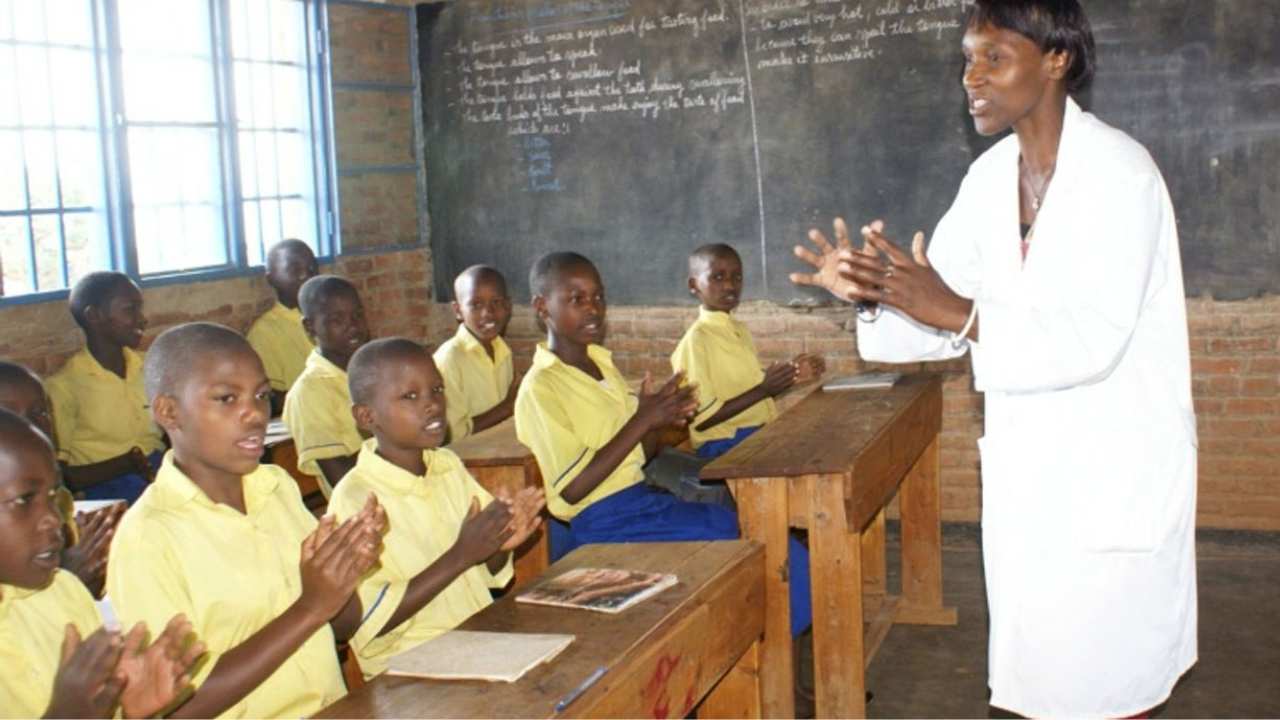Reframing education for peacebuilding
UNESCO has dedicated January 24, 2024, as the International Day of Education to combat hate speech. This decision highlights the crucial role that education and educators play in fighting against hate speech. The harmful phenomenon that has been on the rise, particularly on social media platforms, is causing a significant negative impact on the unity […]

fct primary schools
UNESCO has dedicated January 24, 2024, as the International Day of Education to combat hate speech. This decision highlights the crucial role that education and educators play in fighting against hate speech. The harmful phenomenon that has been on the rise, particularly on social media platforms, is causing a significant negative impact on the unity of our societies.
The spread of misinformation, hate speech, and propaganda has led to the polarisation of communities, eroding the trust and empathy that hold societies together. This, in turn, has fuelled the rise of intolerance, discrimination, and violence, which are posing a grave threat to the peaceful coexistence of diverse groups of people.
Addressing this phenomenon and promoting responsible behaviour online is essential to strengthening the bonds of unity among individuals and communities. However, there is a need to expand the conversation about education beyond being a buzzword in development discourse.
As a student pursuing studies in International Education and Development at the University of Sussex, I have encountered a profound realisation that the prevailing discourse often constrains the definition of education to formal Western-style pedagogy, overlooking the rich diversity of educational paradigms and the clash of ideologies that underpin educational systems worldwide. In light of this, a pertinent question arises: can education, within its current framing, genuinely serve as a herald of peace?
- Okupe applauds Ndume’s loyalty despite policy consultation lapses in presidency
- Building collapse and antecedents (I)
The global landscape of education is deeply entrenched in a clash of ideologies embroiled in a perpetual struggle between competing paradigms, from modernisation theories to neoliberalism’s pervasive influence. The imposition of Western-centric models of education as the epitome of knowledge acquisition and societal progress eclipses the rich diversity of educational traditions, indigenous wisdom, and alternative modes of learning that thrive across different cultures and regions.
As one practically involved in non-formal education systems in Kaduna, Nigeria, I see loads of knowledge that could benefit society thrown away in a bid to appeal to Western ideologies. This reductionist approach marginalises non-Western educational systems and perpetuates a homogenised and hegemonic view of education, impeding the potential for inclusive and harmonious educational frameworks.
The commodification of education under neoliberalism has created an inequitable system driven by market agendas. This neoliberal onslaught has commodified education into a transactional commodity, robbing it of its transformative and emancipatory potential and exacerbating social disparities in access to quality education.
In many non-western countries, including Nigeria, it is not uncommon for educational administrators to inadvertently create an education system that caters only to the elite. This can happen due to various reasons, such as limited resources, lack of access to education for marginalised groups, or a focus on academic excellence at the expense of inclusivity. Unfortunately, this means that many students from disadvantaged backgrounds are left behind, unable to access the same opportunities as their more privileged peers. As a result, educators and policymakers must work towards creating a more equitable education system accessible to all, regardless of socio-economic status or other factors.
In this context, it becomes evident that the current framing of education, dominated by Western-centric ideologies and neoliberal agendas, presents formidable obstacles to its capacity to sow the seeds of peace. By perpetuating hegemonic narratives and homogenising diverse educational traditions, mainstream scholarly discourse inadvertently marginalises and alienates non-Western educational systems, thereby hindering the realisation of a genuinely inclusive and peaceful educational landscape.
However, amidst these complexities and challenges, there exists an opportunity for transformative change. Education, when emancipated from the shackles of hegemonic paradigms and neoliberal commodification, possesses the potential to foster peace and inclusivity. By respecting and incorporating diverse educational backgrounds and practices, we can create a more comprehensive and inclusive learning experience that values indigenous wisdom.
Education can transcend its current framing by elevating diverse learning modes to become a catalyst for social cohesion, intercultural understanding, and sustainable peace.
To this end, education should be reconceptualised as a dynamic process rooted in cultural diversity, intercultural dialogue, and mutual understanding. This entails an earnest commitment to decolonise educational curricula, amplify marginalised voices, and nurture a pedagogical approach that celebrates pluralism and promotes critical consciousness.
Furthermore, an equitable and accessible educational ecosystem, devoid of neoliberal market pressures, must ensure that education becomes a unifying force that transcends social divisions and prejudices, fostering a culture of empathy, tolerance, and respect.
In conclusion, the International Day of Education serves as a poignant reminder of the indispensable role of education and educators in countering hate speech and nurturing peaceful societies. While the clash of ideologies and the neoliberal commodification of education present formidable challenges, the potential for transformative change lies in emancipating education from hegemonic paradigms and embracing inclusive, culturally diverse, and equitable educational frameworks. By doing so, education can transcend its current framing and emerge as a potent force for peace, fostering a world where diversity is celebrated, dialogue is embraced, and knowledge is a universal instrument of harmony.
Namse Udosen is a Chevening scholar, School of Education and Social Works University of Sussex, United Kingdom
